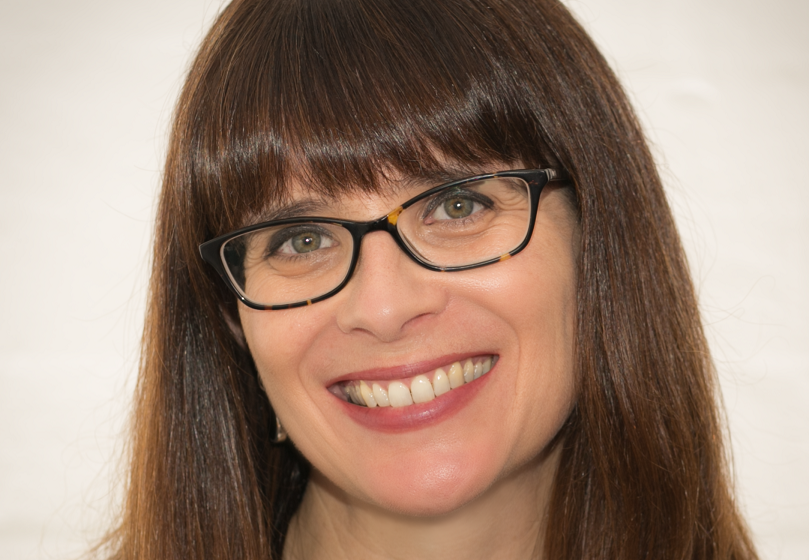Libbie Doherty.
Libbie Doherty, the ABC’s head of children’s content, is at the forefront of the broadcaster’s drive to achieve better representation of Australia’s diverse population on screen and among its workforce.
“Our content needs to look like what children are experiencing in classrooms, sports clubs and hanging out in the mall. We want our world on screen to reflect what they’re doing,” Doherty said in a webinar this week with Screen Producers Australia CEO Matt Deaner.
The executive outlined a raft of initiatives designed to redress gender imbalance and improve cultural and linguistic diversity (CALD) in the workforce, and paid tribute to animation producers for continuing to work during the pandemic.
Later this year, COVID-19 restrictions permitting, the ABC will invite three mid-career directors from CALD backgrounds to work on Play School.
Each year the ABC teams up with Screen Australia on an initiative designed to provide pathways for emerging creatives and under-represented voices. That started in 2018 with Girls season, which co-funded two dramas and three documentaries led by female creatives.
Last year’s DisRupted initiative funded three films, each led by a young creative with a disability, supported by producers from CJZ, Sticky Pictures and LateNite Films. The subject of this year’s initiative will be announced soon.
More broadly, ABC Children’s is committed to greater diversity and inclusiveness in front of and behind the camera in line with the broadcaster’s Diversity and Inclusion Plan 2019-22.
Among its targets, by August 2022 the ABC aims to have 15 per cent of content maker roles and the same proportion of executive roles filled by CALD employees; 3.4 per cent Aboriginal or Torres Strait Islander/Indigenous employees; 8 per cent employees with disability; and 50 per cent of all executive roles filled by women.
The organisation is also collating data on sexual orientation and gender identity and will decide in its mid-term review on whether to set a new target for LGBTQI+ representation in the workforce.
As part of its quest to ensure more Indigenous representation, the ABC now screens an acknowledgement of country across all its children’s services.
Doherty said her division is still working through the impact of the Federal Government’s budget cuts, which resulted in a handful of redundancies in the Melbourne office.
As the broadcaster revealed in its submission to the government’s ‘Supporting Australian Stories on Our Screens’ options paper, it has committed to invest $36 million in children’s content and $70 million in scripted drama over the next two years.
However ABC MD David Anderson warned that maintaining funding at that level after 2021/22 would be unsustainable unless indexation of the ABC’s operational funding is restored.
The ABC is applying to the Screen Australia-administered $50 million Temporary Interruption Fund for COVID-19 insurance cover on two live-action series which are due to start production soon. She did not name either but said one will be filmed in Western Australia (possibly a reference to a second season of Komixx Entertainment’s Itch), the other in NSW.
‘Kangaroo Beach.’
“The children’s production industry in general does a phenomenal job in working with the licence fees we pay and in bringing in international money so shows have global reach,” she said.
“Australian producers are constantly punching above their weight on the international market. I often get calls from broadcasters around the world asking what is in our slate and trying to track the projects we have because we have this pedigree of excellent children’s content.”
The exec was full of praise for animation production companies’ resourcefulness in maintaining their output, often in collaboration with studios in Singapore, Malaysia and India. “Animation will save our schedule next year,” she said.
She cited Cheeky Little Media’s Kangaroo Beach, a 26-part animated series centred on the adventures of four furry junior lifeguards; Flying Bark Productions’ 100% Wolf, a comedy about an 11-year-old boy who is set to turn into a werewolf; and Space Nova, a sci-fi adventure set in 2162 that follows space adventurer siblings Jet and Adelaide Nova, a co-production between SLR Productions and Malaysia’s Giggle Garage.
Stressing the importance of partnerships with international players, she highlighted Disney’s global rights deal for Ludo Studio’s Bluey; the UK’s CBBC’s acquisition of producer Kirsty Stark and creator Julie Kalceff’s transgender series First Day; and alliances with Netflix and Germany’s ZDF Enterprises and RTL.
Deaner asked for her views on the commercial free-to-air networks’ submissions to the options paper calling for the scrapping of local content quotas, including children’s.
“That would be to the detriment of audiences who would only have a very small, limited amount of Australian content to engage with,” she said.
“We’re working with a lot with the streamers and big global players. It seems extraordinary to me that the local broadcasters have not gone down the path of prioritizing children’s content as part of their streaming future.”
Welcoming Network 10’s upcoming 10 Shake, which will target kids during daytime, she hopes it will commission local content to sit alongside imports like SpongeBob SquarePants.
She is talking to FTA networks about collaborating on two series and is keen to buy the second window for kids shows funded by streamers.
Asked about the kind of shows she is seeking, she said: “We’re looking for really complex, rich and layered storytelling. Projects with a different narrative structure that are challenging and tackle big topics and big ideas, with a big E for Entertainment. We want kids to feel and think.”
She encourages creatives who want to pitch shows to do so via the ABC’s Independent Production portal or to contact her development execs Amanda Isdale and Michael Drake.



